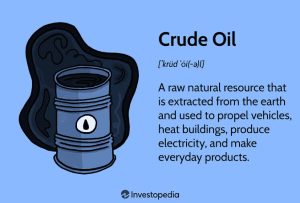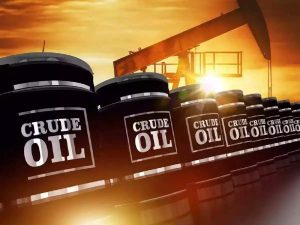“You know I am a Chartered Accountant. If anybody confronts me with the idea that fuel price should be increased, the first question I will ask is, how much does it cost to produce a litre of petrol, minding the other derivatives from crude ?” That was the exact words of the acclaimed winner of the June 12, 1993 elections, Chief MKO Abiola, GCFR, during an interview relating to the campaign for the 1993 Presidential Election. May his memory continue to be a blessing.
That exactly is the most frequently asked question on the lips of Nigerians after the recent petrol pump price hike across the Country at a period when many Nigerians were expecting some dividends from the crude for Naira programme that the Federal Government have gone into with Dangote Refinery (DRL).
In trying to hazard an answer for this pertinent question, one must first ruminate through many vague answers on the internet of what exactly the production cost of 1 liter of petrol is. It is by getting an answer to this MKO Abiola’s question that one can be able to also deduce an answer for the crude for the Naira programme.
The most common answer found in various articles while surfing the internet for an answer is that 170 Litres of Petroleum products is what is derived from one (1) barrel of Crude Oil.
An article that I will heavily rely on to drive this narrative is the write up by the University of Calgary, Canada, titled: “Energy Education”. It states therein that, ” A single barrel of crude oil – once it has been refined – can yield a large number of different, useful petroleum products. The ability to obtain products like gasoline (petrol), asphalt and propane from a single product is part of what makes refining such a vital process.”
 The article goes further in speaking about the process of refining crude oil that, ” When crude oil is input into a fractional distillation tower, there is an overall increase in volume of product….If a single barrel of crude oil – equal to about 159 litres- were refined, the volume of the final products is actually greater than the volume of the initial crude oil. In fact, 170 litres of refined petroleum products can be obtained from 159 litres of crude oil.” This simply tells us that 1 barrel of crude oil means 159 litres of crude oil and 170 litres of Petroleum products in different formats can be derived therefrom.
The article goes further in speaking about the process of refining crude oil that, ” When crude oil is input into a fractional distillation tower, there is an overall increase in volume of product….If a single barrel of crude oil – equal to about 159 litres- were refined, the volume of the final products is actually greater than the volume of the initial crude oil. In fact, 170 litres of refined petroleum products can be obtained from 159 litres of crude oil.” This simply tells us that 1 barrel of crude oil means 159 litres of crude oil and 170 litres of Petroleum products in different formats can be derived therefrom.
Then the same article now deepens further the understanding of the refining process, that, “In litres, gasoline (petrol) makes up about 73 litres of the final 170, diesel and heating oil makes up about 40 litres while kerosene – type – jet fuels make up about 15.5 litres…. petrochemical feedstocks make up only 4.2 litres of the final 170, they are used to make a variety of different products from pharmaceuticals to plastics.” Petroleum coke and Urea are also some of the petroleum product derivatives from the refining of crude oil.
In order to further and better understand the narrative behind what’s exactly hidden behind the opaqueness and attitude of people within the refinery business in Nigeria refusing to tell us what exactly is the cost and revenue acruable from refining crude oil, we will need to take a discourse on about refining 1 Million Litres of Crude Oil using the exactitude of the University of Calgary example of the derivability of 170 litres of petroleum products from 1 Barrel of Crude Oil. In this wise, we will be using an example of 1 Million Barrels of Crude Oil refining to make our calculations. So, 1 Million Barrels will give us 170 Million Litres of Petroleum Products.
The 170 litres Calgary statistics above will give us 73 Million Litres of Petrol, 40 Million Litres of Diesel, 15 Million Litres of kerosene -type jet fuel and 42 Million Litres of Petrochemical Feedstocks that in some cases like that of Pet coke and Urea, come in tonnes.
Using the same stats, let’s now explore the costs and sales price to a well functioning refinery. Let us now explore what revenue accrues to the refinery going by the information provided by NNPC on the price it purchases petrol from DRL at ₦977 per litre. Diesel is costed at ₦1,000 per litre and jet fuel at ₦980 per litre according to DRL. These three (3) petroleum products makes up 75 percent of Petroleum products derived from crude oil. The rest 25 percent are also very useful derivatives which aforesaid includes petroleum coke, heavy fuel oil, liquefied refinery gases, still gas, Asphalt, lubricants, Urea etc, which makes up 42 Million Litres of which some like petroleum coke and Urea are measured in metric tons.
Now, let’s look at the main and major raw material which is crude oil. STATISTA on its website gave the price of Nigeria’s Bonny light crude oil as $79.39 dollars, so lets multiply that by 1 Million Barrels of Crude Oil and it gives us a cost of $79 Million, 390 Thousand dollars translating to ₦119 Billion, 85 Million Naira at an exchange rate of ₦1,500 to 1 dollar, going by the crude oil payable in Naira deal by the Federal Government with DRL. Note that the main raw materials for refining here is crude oil and natural gas condensates. In short, in a lay man’s language, apart from the cost of the completed refinery and the personnel cost, the major raw material for refining crude oil is crude oil because all other oils or condensates or gas used are also products or derivatives from crude oil. So, all in all, crude oil refines crude oil. Back then to our raw, lay man’s calculation, which though may not be perfect, but yet is the closest reality to the truth in order to perhaps draw the real truth out of those in the crude business.
Therefore, going by the Calgary stats, we will derive 73 Million Litres of petrol from the 170 Million Litres of Petroleum products derived from 1 Million Barrels of Crude Oil. Therefore, going by the example of the price that NNPC stated that it bought from DRL, 73 Million Litres multiplied by ₦977 gives us ₦71 Billion, 321 Million Naira as the revenue from 73 Million Litres.
 Going by the same statistics of 40 Million Litres of Diesel from the 170 Million Litres, this will give us 40 Million multiplied by by the diesel price of ₦1,000 per litre which gives us ₦40 Billion Naira revenue.
Going by the same statistics of 40 Million Litres of Diesel from the 170 Million Litres, this will give us 40 Million multiplied by by the diesel price of ₦1,000 per litre which gives us ₦40 Billion Naira revenue.
The same stats is used in the case of jet fuel which gives us 15 Million Litres from the crude oil refining of 1 Million Barrels of Crude Oil. The price of jet fuel as announced by DRL is ₦980. So, 15 Million Litres multiplied by ₦980 gives us ₦14 Billion, 700 Million Naira as the revenue for the 15 Million Litres of jet fuel derived from the 170 Million.
The three (3) petroleum products which its price of sales are discussed above are gasoline (petrol), diesel and jet fuel making up 75 percent of the petroleum products derived from 1 Million Barrels of Crude Oil. 75 percent of 170 Million Litres of Petroleum products translates to 128 Million Litres translating to a total revenue of ₦126 Billion, 21 Million Naira Only. Yet, there still remains 42 Million Litres of Petroleum products that is yet to be given specific sales price from our assumptive refinery, refining 1 Million Barrels of Crude Oil.
But, before going further in our analysis, let’s consider that in this example being outlaid, the cost of the main raw material, that is the crude oil, at a Naira for crude programme, as aforementioned, is ₦119 Billion, 85 Million Naira and the accrued revenue from 75 percent of the petroleum products, that is 128 Million Litres, have accrued a revenue of ₦126 Billion, 21 Million Naira, which if strictly looking at just the cost of the crude oil, raw material, the refinery have surpassed the purchasing price by at least ₦6 Billion, 936 Million Naira, though we are yet to take into consideration other costs of production variables, but we need to note that we are also yet to put a price to 25 percent of the petroleum derivatives amounting to about 42 Million Litres.
Let’s now assume that the refinery sells petroleum coke which is used to make anodes for the aluminium, steel and titanium smelting industry and as also the feedstock for the production of synthetic graphite.
According to IMARC in it’s article, “Petroleum Coke, Pricing Report 2024: Price Trend, Chart, Market Analysis, News, Demand, Historical and Forecast Data” – Report ID: SR 112024A22562 states that; “The global petroleum coke market size reached US$25.3 Billion Dollars in 2023.” It went further, “The price of feedstock in the United States for Q4 2023 reached 678 USD/MT.” That is, going by the United States price of as at the last quarter of 2023, one tonne of petroleum coke was $678 dollars and according to the NNPC, Nigeria’s Bonny light crude can derive 44,800 Metric tonnes of coke from 1 Million Barrels of Crude Oil which is the template we are using in our example of the size of crude oil being assumptively refined in order to put crude oil refining issues into better perspective.
Therefore, 44,800 metric tonnes multiplied by $678 dollars gives us a revenue of ₦45 Billion, 561 Million, 600 Hundred Thousand Naira, using our usual exchange rate of ₦1,500.
Lastly, let’s look at Urea that may be derived indirectly from 1 Million Barrels of Crude Oil considering refinery by products and ammonia production. 17,640 tonnes of Urea is said to be derivable from 1 Million Barrels of crude in the refining process. According to a source from the World Bank in www.globaleconomy.com, Urea prices in September 2024 is put at $337.5 dollars per metric tonne. So, 17,640 metric tonnes multiplied by $337.5 gives us $5,953,500 dollars which translates to ₦8 Billion, 930 Million, 250 Thousand Naira.
The revenue calculation of just petroleum coke and Urea from our example of refining 1 Million Barrels of Crude Oil gives us a whopping revenue of ₦54 Billion, 491 Million, 850 Thousand Naira.
From the foregoing therefore, ₦126 Billion, 21 Million Naira added to ₦54 Billion, 491 Million, 850 Thousand Naira gives us a total revenue of ₦180 Billion, 512 Million, 850 Thousand Naira from five petroleum products derivable from 1 Million Barrels of Crude Oil refined by a Petroleum Refinery.
Even calculating from some assumptions on the issue that the cost of refining a litre of petrol is between $0.40 cents to $0.60 cents, then using our present Calgary stat of 170 litres from 1 Barrel of crude oil with our calculation of refining 1 Million Barrels of Crude Oil, a calculation of a production cost of $0.60 cents per litre multiplied by ₦1,500 gives ₦900 multiplied by 170 Million Litres of Petroleum products gives ₦153 Billion Naira as production cost of ₦1 Million Barrels of Crude Oil. Going by the revenue anticipation of ₦180 Billion, 512 Million, 850 Thousand Naira, a refinery producing at a cost of $0.60 cents per litre still have a profit of ₦37 Billion Naira plus in 4 days for a refinery with a capacity of 250,000 barrels of crude oil per day. This is even far higher than the profit worked out using just five (5) petroleum products derived from 170 Million litres.
With the main cost of crude oil going for ₦119 Billion, 85 Million Naira subtracted from the revenue of ₦180 Billion, 512 Million, 850 Thousand Naira, then a refinery functioning at optimum level is left with ₦61 Billion, 512 Million, 850 Thousand Naira.
Then the question is, what exactly is the cost of other variables in the refining process that will take away such a huge revenue ? Personnel cost ? Other sundry raw materials ? Loan and interest payments ? What exactly will eat up a revenue profit of ₦61 Billion Naira plus the fact that this huge revenue margin is achievable within four (4) days of refining for a refinery producing at a capacity of 250,000 barrels of crude oil per day. Note also, that we have also dealt only with just five petroleum products without adding revenues that may accrue from other derivatives.
Another question that hits one straight in the face is when a refinery like DRL gets its crude oil from the Federal Government on a very conducive scale of paying in Naira, circumventing the dollar trade and other associated premiums with the NNPC at first being the sole off taker of just the petrol, which is just 43 percent, then the question for any reasonable man to ask is what becomes of the other 57 percent petroleum derivatives from the crude oil ? What becomes of the diesel, jet fuel, petroleum coke, Urea propylene, lubricants and other petrochemical feedstocks ?
Yes, we acknowledge and feel proud of having a huge economic giant like the DRL ensconced within the Nigerian economy, but we also need ask of what exact benefit and economic value is it to the ordinary Nigerian ? If DRL benefits from procuring crude oil in Naira, then, what benefits accrue back to ordinary Nigerians from this ? So, what benefits do accrue from petrol and diesel which is the most common denominator that affects the daily welfare of Nigerians ?
The question, therefore, is exactly what burden will DRL help in taking off the aching shoulders of Nigerians ? Is it in the cost of petrol or diesel or cooking gas ?
ARAMCO in Saudi Arabia, taken an example from Alhaji Aliko Dangote’s interview on Bloomberg TV, sells diesel to Saudis at 1.150 SAR (Saudi Riyal) per litre, which at an exchange rate of ₦436 to 1 SAR amounts to ₦501, that’s about 90 percent lower than DRL’s ₦1,000 per litre of diesel. They sell kerosene to Saudis at 1.33 SAR per litre which translates to ₦580 per litre whereas kerosene in Nigeria as at September 23, 2024 is at ₦1,770 per litre, which is about 200 percent higher than what obtains in Saudi Arabia. Likewise, cooking gas in the same Saudi Arabia is at a cost of 1.04 SAR per kilogramme, which translates to ₦453.44 whereas Nigerians pay roughly ₦1,000 per kilogramme
Lastly, the question raised by Chief MKO Abiola still tugs at my heart and I therefore ask DRL and other refineries in Nigeria, again, “how much does it cost to produce a litre of petrol, minding the other derivatives from crude ?”.
Who exactly will bell the cat and answer this question in a transparent and most honest exactitude ? Who ? In order that our people may benefit.
Femi Oniyide Esq
Share your story or advertise with us: Whatsapp: +2347068606071 Email: info@newspotng.com













